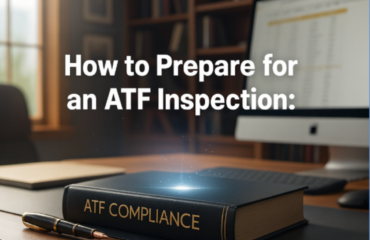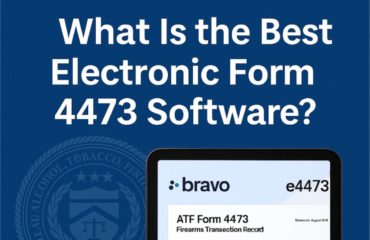
As a pawn broker, dealing with firearms means becoming an expert in the ATF Form 4473, “Firearms Transaction Record.” It’s a critical document, and getting it right every time is non-negotiable for compliance and the smooth operation of your business. We know you encounter common questions from customers, and sometimes even from your own team, about this essential form.
Here are some of the most frequent 4473 questions and what you, as a pawn broker, need to know to answer them confidently and ensure compliance:
- “Why Do I Have to Fill Out This Form for a Pawn Loan?”
This is a very common one, especially for customers who are used to simply pawning other items. The key point to convey is that any transaction involving the transfer of a firearm from an FFL (like your pawn shop) to an unlicensed person requires a 4473. This includes both direct sales and, crucially, the redemption of a pawned firearm. Even though they previously owned the firearm, its transfer back to them from your FFL requires the federal paperwork. It’s not about them; it’s about the firearm moving out of your licensed inventory.
- “I’m Just Pawning It, Not Buying It. Do I Still Need to Answer All These Questions?”
Yes, absolutely. When a customer pawns a firearm, you are acquiring that firearm into your FFL’s inventory. When they redeem it, they are re-acquiring it. Both steps are considered “acquisitions” and “dispositions” in your A&D Bound Book, and the disposition (when they pick it up) requires a completed 4473 and a background check. All questions on the 4473 must be answered truthfully by the transferee for any firearm transfer, regardless of whether it’s a new purchase or a redemption.
- “What if the Person Redeeming the Firearm Isn’t the Original Owner Who Pawned It?”
This is a critical scenario. Only the person who originally pawned the firearm can redeem it. The 4473 is tied to the individual receiving the firearm. If someone else tries to pick it up, even with permission from the original owner, it’s considered a “straw purchase” attempt, which is illegal. You must refuse the transfer and explain this policy clearly. Identity and eligibility checks are paramount.
- “I’ve Moved Since I Pawned My Gun. What Address Do I Put?”
The address on the 4473 must be the transferee’s current residential address at the time of the transfer. This address must also match the address on their valid government-issued photo identification (typically a driver’s license or state ID). If their ID doesn’t show their current address, they’ll need to provide a secondary government-issued document that does (e.g., a vehicle registration, property tax statement, or a concealed carry permit) as per ATF regulations. You must ensure consistency.
- “What Happens If I Get Denied on My Background Check When Redeeming?”
If a customer is denied when trying to redeem a pawned firearm, you cannot legally return the firearm to them. It remains in your custody. You should advise the customer of their right to appeal the NICS decision and explain that the firearm cannot be returned until a “proceed” status is received, or a specific time frame (often 90 days) has passed without a reversal of the denial, at which point the firearm would be considered forfeited as per your pawn agreement terms. Document everything meticulously.
- “How Long Does This Form Take to Fill Out?” / “How Long Does the Background Check Take?”
Explain that the time to fill out the form depends on the individual’s preparedness and understanding of the questions. Emphasize the importance of accuracy and honesty over speed. For the background check, explain that while NICS often provides an instant “proceed,” delays can occur, leading to a “delayed” status. You must adhere strictly to the NICS response protocol, including the three-business-day waiting period for a default “proceed” if no further response is received, depending on state law.
The Bottom Line for Pawn Brokers: Meticulous Compliance
The 4473 form is your frontline defense against illegal firearm transfers and your primary tool for ATF compliance. By understanding these common questions and having clear, consistent answers, you not only educate your customers but also protect your pawn shop from severe penalties. Always prioritize thoroughness and adherence to all federal, state, and local regulations.



